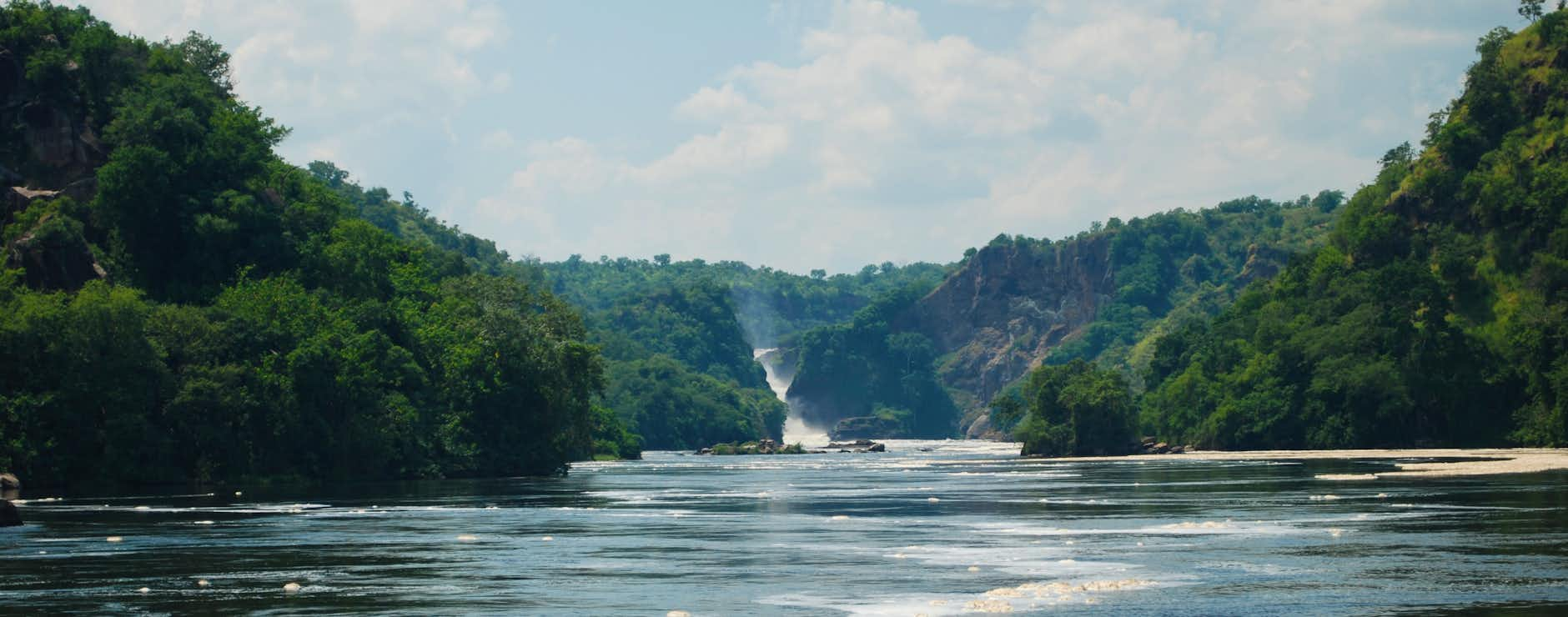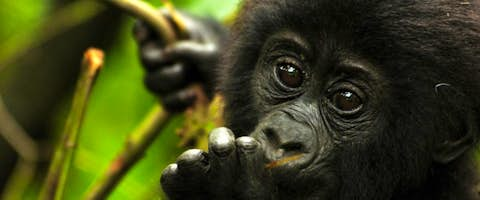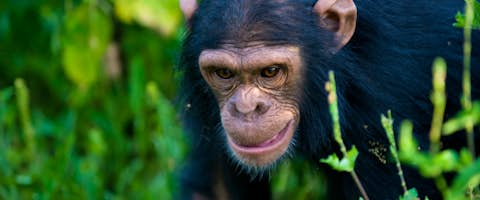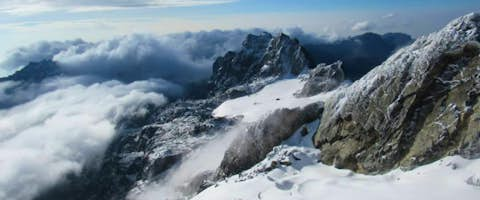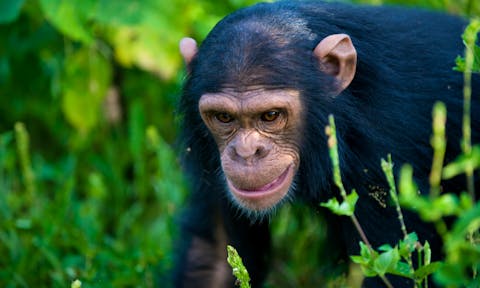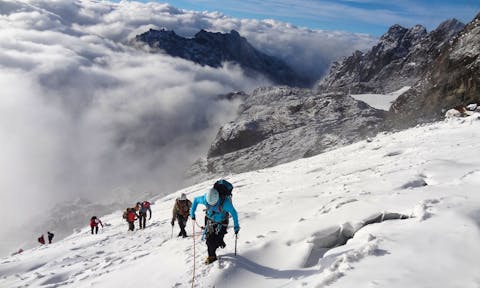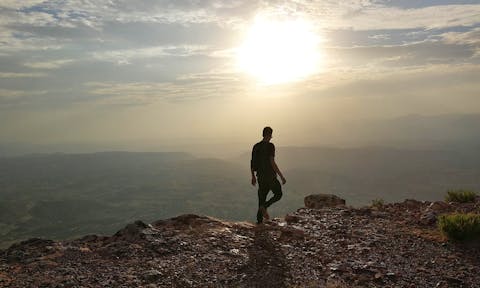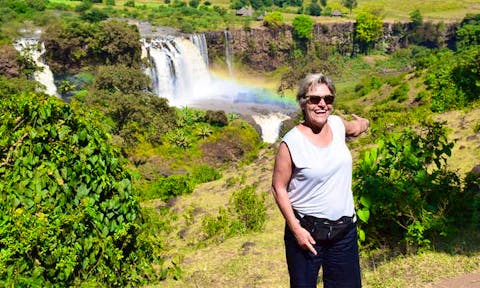Context
Africa, perhaps unlike any other continent, is a place of bold images and visceral reactions. Mention the name and the chances are people will evoke war, mud huts, disease and dictators just as much as they will lions, elephants, ancient civilisations and sandy beaches.
The reality is, that, just like any other place, the African continent is a land of complex truths, delicate nuance and ever-changing reality.
That is why when you ask us a question, you’ll rarely get a short answer. But it is also why we will always send you away confident that not only will you be safe, but that you will feel safe. When you emerge from the monochrome airport into the sounds and smells of Africa, you will soon forget that you were ever concerned.
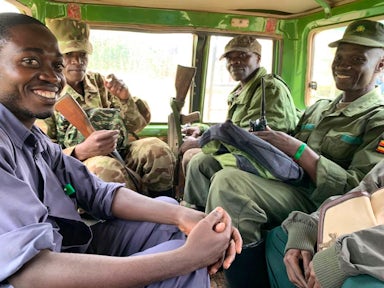
You will join researchers and rangers
This does not mean that we have painted that most colourful of continents in shades of beige. Not a bit of it.
African countries on the whole are more chaotic and unpredictable than many of us are used to, and we can’t (and don’t want to) change that. Instead, we will prepare you for, and support you during, your trip, so you can take the bumps in the road in your stride and enjoy every minute of the experience. Even if some of it is in hindsight (and grows with the telling!).
This applies to every African destination. However, the key to producing confident travellers is to communicate the key issues affecting each destination clearly, so you can understand why Uganda is a safe country to visit and not just take our word for it. We organise travel to Uganda because we know and love the country - we are confident you will too.
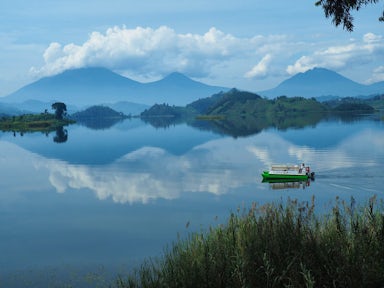
Afternoon walk around Lake Mutanda
Regional Security
Uganda is a member of the African Union and the East African Community and so has peaceful relations with its neighbours South Sudan, Kenya, Tanzania and Rwanda.
Uganda’s main border is with the Democratic Republic of Congo (DRC). Although the DRC remains an unstable and badly governed country, the Uganda Defence Force maintains a strong presence all along the border (you’ll often bump into a friendly patrol when trekking in the Rwenzoris), deterring any neighbourly naughtiness.
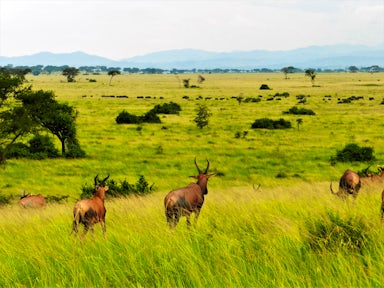
Queen Elizabeth National Park is home to a plethora of wildlife.
Internal Stability
The National Resistance Movement, led by President Museveni, has governed Uganda since 1986.
For much of the 1990s the north of the country remained afflicted by conflict as government forces sought to defeat the Lord’s Resistance Army. This came to an end in 2006 as the LRA forces withdrew into the DRC.
Additionally, the Ugandan government demilitarised the Karamojong people in the north-east of the country, removing the firearms that had been in circulation throughout the civil wars.
While there is ongoing tension between central government and followers of the traditional kingdoms, this does not affect tourists.
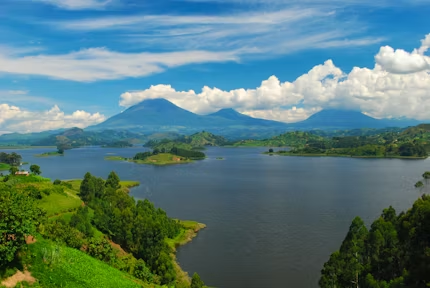
Lake Mutanda is surrounded by stunning natural beauty.
Threat to Health
General
Uganda is a tropical country and is therefore home to a number of diseases. However, simple vaccinations can prevent you from contracting the majority of these.
Malaria is prevented by taking a course of anti-malarial prophylaxis and preventing mosquito bites by sleeping under a mosquito net (where necessary), applying insect repellant and wearing long sleeves and trousers at night.
We strongly recommend you consult your family doctor, GP, or local health nurse to understand which vaccinations you will require based on your medical history.
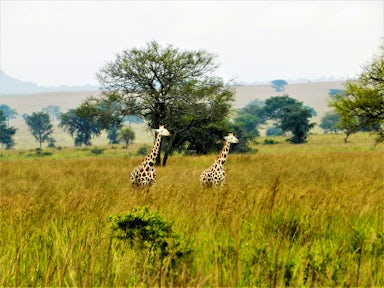
Kidepo has over 50 Rothschild’s giraffe, an internationally important population.
Ebola
The disease that most catches the imagination is Ebola, a serious viral infection with a high mortality rate that spreads quickly.
There are Ebola outbreaks every few years across west and Central Africa that vary in severity. The latest outbreak originated in the western DRC in August 2018. Although close to the border with Uganda, it wasn’t until July 2019 an official case of Ebola was reported in Uganda.
Far from being a nightmare development, Uganda had prepared comprehensively for the scenario and responded quickly. The infected individuals were quickly identified and moved on very quickly in Uganda with all family members quarantined and their contact trail locked down and checked. While it was certainly serious, the rapid and thorough response of Ugandan and International Health Organisations contained the issue quickly leaving travel to Uganda unaffected.
The patient was in the Kasese district, which borders the DRC, but was not in Kasese town nor imminently close to any of the main tourism areas.
Ebola can only be spread from contact with bodily fluids, so being geographically near the area did not pose an immediate health-risk. Ebola can be and is present in chimpanzees and gorillas, this was detected in the 1970s - however there are no known cases of transmission to humans. Frankly if you did get close enough to either of the above to catch a communicable disease, then Ebola is probably going to be the least of your worries at that point!
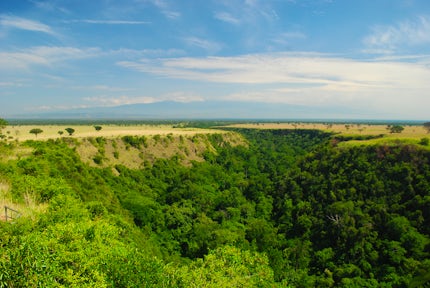
An aerial view of Kyambura Gorge in Queen Elizabeth National Park.
Personal Security
The warmth of the Ugandan welcome is famous; it is the people of the country that really make a trip.
It is wonderful to be able to wander around a village or explore a bustling city market to get a real sense of the country. And in general, you can do this in Uganda. There are of course places in which it is not wise to walk unaccompanied, just as in any other country of the world.
Uganda is a poor country and the vast majority of the population have far less than the average international visitor. It is therefore wise not to flaunt valuable items when walking in cities, or to leave an expensive necklace on display in a hotel room when you are out and about.
You should expect to regularly see armed members of the police, army and wildlife authority as you travel. This comes as a shock to visitors from countries where firearms are seldom seen, but you soon get used to it. The guns are not an indication of risk or threat, rather the government re-affirming its strength.
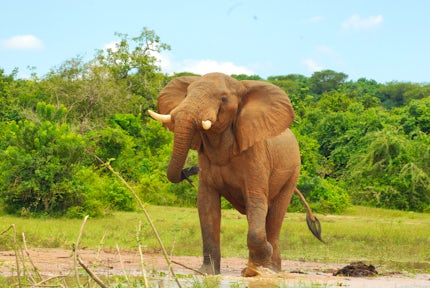
Uganda is one of Africa's most bio-diverse safari destinations.
Popular Trips to Uganda
The tours below showcase just some of what is possible. Use these itineraries as starting points, or to draw inspiration. Then get in touch, and let our expert team help craft the perfect itinerary for you.
Thinking about visiting Uganda?
Listen
We'll spend some time listening to your aspirations, then discuss the kind of experience that might suit you.
Match
Next we'll discuss the options, shortlist the best trips for you and present you our impartial recommendations.
Reserve
We'll place a 24 hour hold on your preferred option - without obligation - whilst we talk through the details.
Get in touch and we can help you understand your options, design an itinerary that's right for you, and then get you set up and ready to go.
+1 315 645 2889

